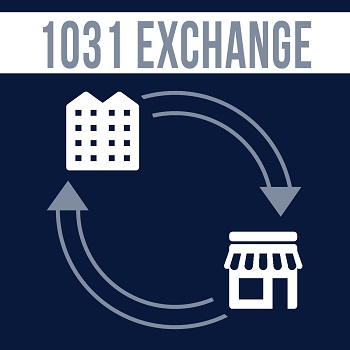A 1031 Exchange
 Every time Congress meddles with the tax laws, they open the door to worries that the 1031 exchange rule will go the way of the Dodo bird. Real estate investors worried again when Congress began work on the Trump tax reform act in late 2017. Once again the 1031 exchange lives on. What is a 1031 Exchange? When would I use it?
Every time Congress meddles with the tax laws, they open the door to worries that the 1031 exchange rule will go the way of the Dodo bird. Real estate investors worried again when Congress began work on the Trump tax reform act in late 2017. Once again the 1031 exchange lives on. What is a 1031 Exchange? When would I use it?
What is a 1031 Exchange?
A 1031 exchange is mostly relevant for people with a rental property. 1031 exchange is relevant for people who want to use the proceeds from the sale of one rental property to purchase another rental property and defer the capital gains taxes.
Why Would I Use a 1031 Exchange?
The purpose of a 1031 exchange is to defer paying 15 percent taxes on capital gains. If you sell a property and you’ve made some money on it, you pay 15 percent on your gains. If you defer your taxes by using a 1031 exchange, you don’t have to pay the IRS as long as you roll that money into another investment (rental) property
Note, the taxes you defer paying could be as high as 30 percent when you consider depreciation costs, etc. But on the surface, it’s the 15 percent capital gains tax you are avoiding here.
Rules for Using a 1031 Exchange?
Erin Spradlin at BiggerPockets.com shares eight rules for using the 1031 Exchanges.
- The rule works for like-kind properties. The properties in question must be used for business or as an investment. This is meant to exclude primary residences which are, by default, for personal use the majority of the time. Like-kind property also must be within the United States to qualify. For example, a seller cannot use the proceeds from selling a hotel in the U.S. to buy a hotel in Argentina and expect to defer capital gains on the sale. Securities, stocks, partnership interests, and other financial assets are excluded from the definition of like-kind property.
- From the day you sell your initial rental property, you have 45 days to find a property you wish to purchase
- From the day you sell your initial rental property, you have 180 days to close on a new property.
- You must purchase property of equal or greater value than the adjusted value (not the price value — but the adjusted cost basis when taking into account depreciation less commissions and closing costs) of the property you sold, or you will be taxed on the difference.
More of the Rules for Using a 1031 Exchange
- If you do not close on a property within 180 days of selling your initial property, you pay the capital gains tax on your initial property.
- During the interim of selling your first place and closing on your second, you cannot touch/look at/get close to the profits from the first place you sold. That money stays with a 1031 exchange facilitator (qualified intermediary) and not, not, not with you.
- You must sell the old property and the new property by the same entity. Meaning, if you sell a property as John Smith, you have to buy the new one as John Smith — and not as Smith, LLC.
- This point has been debated by the experts, but a good rule of thumb for the majority of you is this: You must own your property for one year and one day to make this 1031 exchange. Otherwise, you will be penalized.
These are the basics. If you have more questions about a 1031 exchange, reach out to a 1031 facilitator, a trusted tax professional, or someone you know and respect in real estate.
Ask for FREE information about How to Sell Your House Fast.
Terra Firma Property Solutions, LLC is a professional, full-service real estate solutions firm.
We buy and sell properties throughout the greater Kansas City area. We specialize in buying distressed homes, then renovating and reselling them to home buyers and landlords. Terra Firma Property Solutions: excited to be part of the economic rejuvenation of Kansas City and its surrounding areas.
Call us today at (816) 866.0566
Photo: http://blog.craftcommercial.com/understanding-1031-exchanges/
